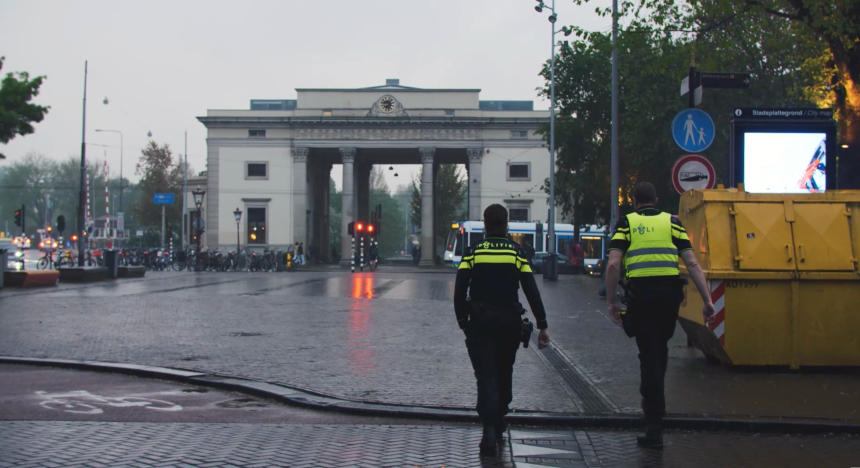Blue on the street: Research into the effects of policing

In his dissertation, Verlaan explores the central question of how the police can deploy their resources as effectively and purposefully as possible. After all, both international academic literature and Dutch police practice increasingly view the social role of the police in broader terms: as a comprehensive solution to a wide range of social problems.
Proactive and reactive policing
To answer the central question of how the police can deploy their resources as effectively and purposefully as possible, Verlaan distinguishes between reactive and proactive policing. Proactive policing focuses on preventing crime, for example through surveillance. Reactive policing focuses on investigating crime, resolving disorder and providing emergency assistance. Reactive policing can also have a preventive effect, for example because perpetrators of crime and disorder will estimate the chance of being caught to be higher and will therefore be deterred from reoffending.
The Haarlemmerbuurt experiment
In Amsterdam's Haarlemmerbuurt neighborhood, Verlaan set up an intensive experiment to investigate the effectiveness of proactive policing in the Netherlands. Between March and July 2024, the visible presence of police officers in the neighborhood was increased to four to five times the usual level.
The results show that the number of crime and disorder calls-for-service in the Haarlemmerbuurt itself decreased by 23% and 16% respectively. However, there was such an increase in the surrounding neighborhood and in the wider basic team area that the positive effect within the intervention area was negated. This indicates a displacement of crime and disorder, rather than an actual reduction. A dynamic known as the “waterbed effect.”
It is remarkable that only 8% of residents said they had noticed the extra police presence. Only one-third had a positive attitude toward increased police presence, and only one in eight respondents thought that the deployment had contributed to a reduction in crime or disorder. During the intervention period, trust in the police, perceived safety in the neighborhood, and trust in the municipality of Amsterdam also declined compared to the control group.
Watch the (Dutch) documentary about the Haarlemmerbuurt experiment on AT5 or read the scientific article.
Reassessment of reactive policing
Based on these findings, Verlaan concludes that a local decrease in crime does not automatically lead to greater trust in the police or a greater sense of security in the neighborhood. In addition, the waterbed effect can limit the effectiveness of proactive action.
Verlaan states: “A more promising strategy for police leaders who want to strengthen their information position and increase public trust may not lie in more visible patrolling, but in consistently and quickly following up on reports of crime.”
PhD defence Tim Verlaan
Tim Verlaan is a PhD candidate at the NSCR and Vrije Universiteit Amsterdam. He will defend his thesis entitled Re-evaluating Reactive Policing at the Faculty of Science at Vrije Universiteit Amsterdam on Wednesday, November 19, 2025, at 3:45 p.m.
His supervisors are Prof. Stijn Ruiter (NSCR/VU) and Prof. Rob van der Mei (CWI/VU). The defense can be attended live at Vrije Universiteit Amsterdam or followed online via this link.
Share this article
Actuele berichten

